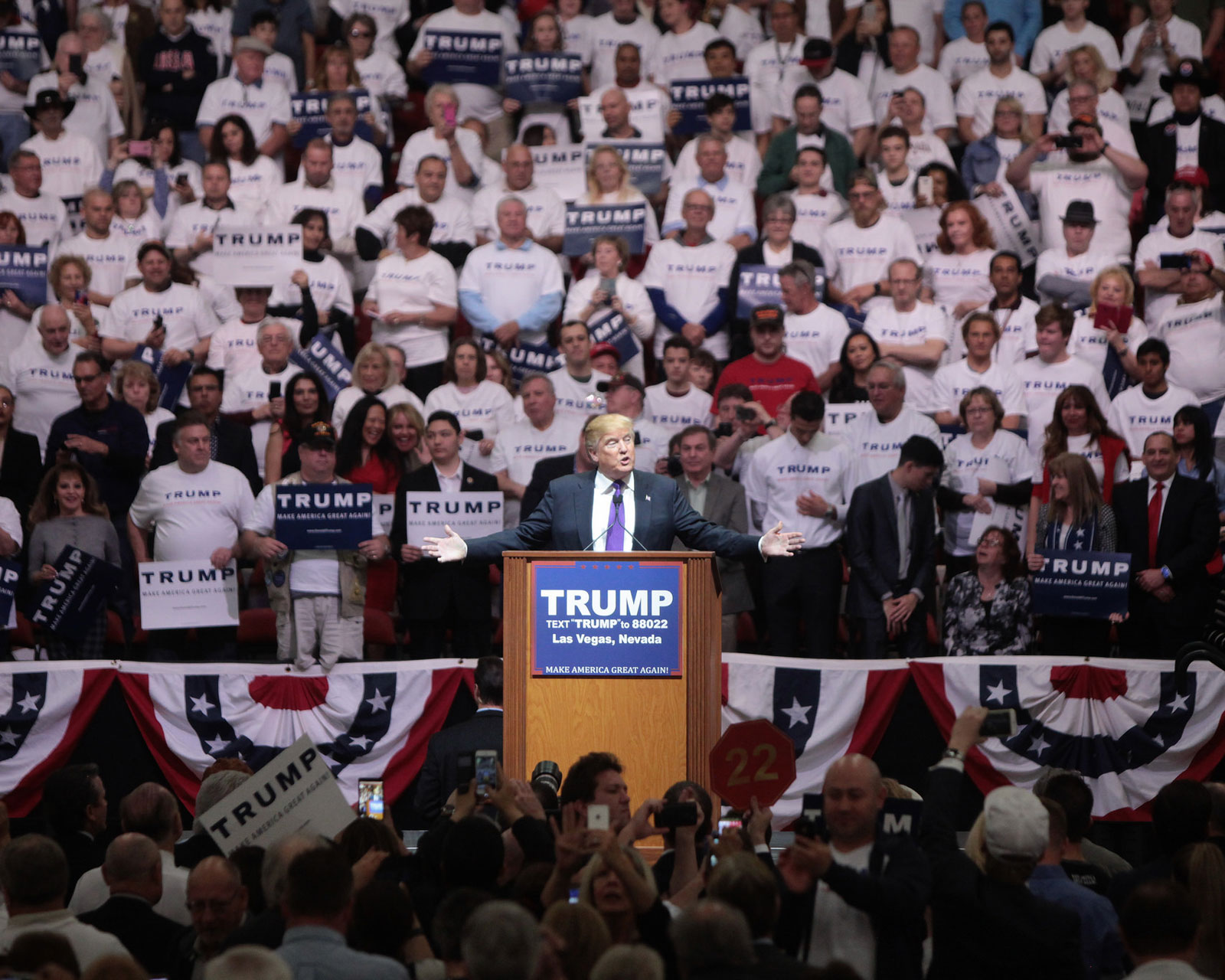The Local newsletter is your free, daily guide to life in Colorado. For locals, by locals.
As the June 28 primary looms for the five remaining Colorado GOP Senate candidates, one thing looms even larger. Hint: He’s loud, unapologetic, and has curious hair.
Whoever wins the right to square off against Democrat Michael Bennet this fall will have to contend with the incumbent and his hefty war chest. He’ll also have to perform a political tightrope walk between being a good Republican soldier, falling into line behind the party’s improbable presidential standard bearer, while simultaneously distancing himself from Donald Trump’s seemingly endless barrage of impolitic blather.

For at least one Senate candidate, Robert Blaha, that rope will be about as wide as Speer Boulevard. The Colorado Springs businessman has already said he’s “all in” for Trump, and he’s running on the same outspoken, outsider bona fides that have helped propel Trump to the top of the GOP ticket, although he’s demonstrably more conservative than the New York billionaire real estate mogul. Ironically, Blaha’s attempts to out-Trump Trump didn’t earn him the endorsement of one of The Orange One’s most ardent supporters, Sarah Palin. She’s backing El Paso County commissioner Darryl Glenn.
Among the other candidates, Ryan Frazier has firmly, if not enthusiastically, promised to support Trump, and neither Glenn nor Jon Keyser have offered many direct comments about him. Only Jack Graham has expressed any outward dismay about Trump’s vitriolic attacks on women, minorities, immigrants, and others. That said, the former Colorado State University quarterback still considers Trump a “teammate” who will have his support come November.
None of this is particularly surprising. In this era of political polarization, Trump’s biggest asset may be that he’s not Hillary Clinton. Anyone who remembers the 90s will find it hard to imagine many devout Republicans jumping ship for her no matter how ugly Trump’s rhetoric gets, and—for now, anyway—the “Never Trump” crowd seems more likely to vote Libertarian or just stay home. In Colorado, where Clinton lost the March caucus to Bernie Sanders by almost 20 points after losing it by an even wider margin to Barack Obama in 2008, the Democrat is probably facing a tough battle unless Trump goes completely rogue.
But despite some recent gains, the Colorado GOP hasn’t managed to turn us red again, either. Colorado voters still are evenly split three ways between Democrats, Republicans, and independents, with the latter category growing fastest. And with a Latino population that’s rapidly increasing in size and influence, Trump’s relentless attacks on these folks can’t be helping GOP Senate candidates who’ll need to appeal to a cross-section of voters to topple Bennet. (The same goes for his continued alienation of women.) According to one study, only 9 percent of Colorado’s Latino voters consider the Republican party to be welcoming of Hispanics, while 45 percent consider the party to be hostile to their community. Those numbers are 45–13 the other way for Democrats, who will be relying on the hope that Trump’s unrepentance will repel independents—and maybe even some moderate Republicans, if such a category still exists—toward their side.
Bennet’s allies have already begun running ads to leverage this advantage, highlighting Trump’s undisciplined viciousness and asking why none of the GOP’s would-be Senators seem very inclined to forcefully disavow it. Senator Bennet has his vulnerabilities, primarily as a supporter of certain Obama administration policies that not everyone in Colorado loves. But whoever emerges from the June 28 contest will be forced to spend much of his campaign not battling Bennet, but trying to distance himself from Trump while still toeing the party line, whatever that may be. It’s a fitting high-wire act in this circus of an election year.








